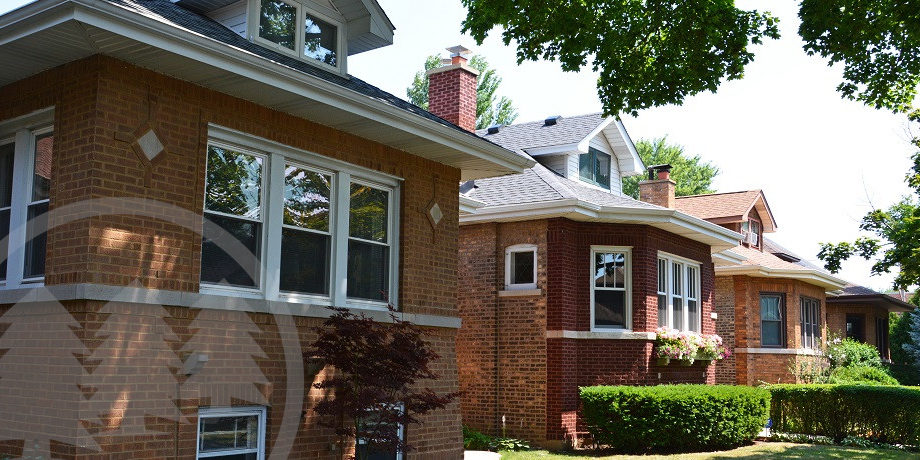Moving into an HOA community is an exciting new start for your family, and it can also be a major change that may require some adjustments on your part. Before moving to an HOA community, you may have a ton of questions to ask. What advantages does moving in a homeowners association community offer for you and your family? Is living in an HOA community that much different compared to living in the city? What homeowner responsibilities should you know about?
No worries, we’re here to give you a few handy tips for moving into an HOA community and integrating right away.
Moving Into an HOA Community: 5 Important Things to Know
Moving into an HOA community is a new experience if you haven’t lived in a neighborhood managed by an HOA board. The first thing you need to know about living in an HOA community is that each community is different from the other. Although an HOA is governed by state rules, each community has its own set of governing rules, too. Just like any community that has been around for some time, most HOA communities will also have their own culture and quirks, some of which might surprise you.
One good way to know more about a neighborhood before formally moving in an HOA community is to ask your realtor. A good realtor should be able to give you an idea of what to expect before you start the process of moving in a homeowners association community, so take the time to sit down, ask, and take notes.
1. Rules and Regulations
 Moving into an HOA community means that you have to be familiar with the HOA rules and regulations. Each and every HOA has its own set of governing rules, and it is part of the homeowner’s responsibility to follow them.
Moving into an HOA community means that you have to be familiar with the HOA rules and regulations. Each and every HOA has its own set of governing rules, and it is part of the homeowner’s responsibility to follow them.
The governing rules for an HOA are usually written up in the form of a CC&R, which is short for Covenants, Conditions and Restrictions. It’s always a good idea to read up on your HOA’s CC&R to give yourself a good idea of the rules, and what could happen if you break them.
Before moving into an HOA community, take the time to look for and browse through the CC&R of the community to inform yourself. You can usually find the CC&R of an HOA on their website, but you also have to make sure that you are getting the current version of the rules when you look them up online. If you cannot find the CC&R online, or if you are not sure if what you have is the latest version, you can contact the HOA itself to get the latest copy. Your real estate agent may also be able to get a copy of the rules for you as well.
Part of your due diligence is in making sure that the home you’re moving into is in compliance with the current HOA rules. If it is not, you may find yourself faced with nonpayment HOA fines, having to make changes to your home, or even face a risk of foreclosure. Again, you’ll need to work with your real estate agent to find out if the home is in compliance, or what issues you will have to remedy as soon as you move in.
2. HOA Fees
 One of the most important homeowner responsibilities is keeping up with the HOA fees. Most if not all associations regularly collect a predetermined amount from each homeowner, which helps to cover community-wide services and amenities.
One of the most important homeowner responsibilities is keeping up with the HOA fees. Most if not all associations regularly collect a predetermined amount from each homeowner, which helps to cover community-wide services and amenities.
They may also collect HOA special assessments, as well, to cover major repairs or new community improvements. It’s very important to know the specific amount you need to pay every month and if your property is up-to-date when it comes to HOA dues.
Also, keep in mind that fees are different from one community to another, and even from one property to the next. You may also see an HOA fee increase, as well.
Since moving into an HOA community comes with a few perks, you should find out how your monthly dues cover them. Are your payments covering garbage pickup? How about snow removal? If your HOA fees are going into amenities like swimming pools and tennis courts, are you able to use them as well?
3. Procedures for Home Improvement
You may have plans for your future home even before you’re moving into an HOA community. It’s also a good idea to find out early on what you can do with your home since each HOA has its own environmental rules in place. Some HOAs limit the size of gardens to keep them uniform. You may not be allowed to start a compost pile at all.
If you’re planning to install solar panels, some communities may have restrictions on those as well. Before you start investing in modifications for your home, be sure to check with the HOA rules and regulations first.
Even if the home improvement you plan to do is allowed within the HOA rules, you may still need to find out if there is a procedure for approval involved. As always, check with your CC&R for the details.
4. How to Participate in HOA Meetings
 If you own a home within an HOA neighborhood, it is essential to have a proactive approach and attend all necessary meetings within the community. Homeowners need to become active participants of their community in order to help the HOA with its management services.
If you own a home within an HOA neighborhood, it is essential to have a proactive approach and attend all necessary meetings within the community. Homeowners need to become active participants of their community in order to help the HOA with its management services.
Getting feedback about their performance from the residents of the community will allow the HOA to improve itself further and provide a better quality of services to its members.
HOA meetings also highlight the financial condition of the association and inform the residents of where their paid maintenance charges are being utilized.
5. How to Join HOA Social Events
One of the best things about moving into an HOA community is the sense of belonging you can derive out of it. Most HOAs organize many events to allow the residents within the community to meet, socialize, and get to know each other. HOA social events are important opportunities to experience community living, and if you have the time, it’s always a good idea to attend some of them. You can usually find the details for these events in the HOA newsletter or in the social calendar on the HOA website.
Moving into an HOA Community: It’s Good to Be Prepared
Moving into an HOA community can be one of the best decisions you make for your family – we at Cedar Management Group can certainly vouch for that. It does require a bit of preparation on your part before the moving truck rolls in, but once you get the right information, you’re in good shape.
RELATED ARTICLES:
- What Is An HOA Fee? What Does It Cover?
- What Are The HOA Governing Documents You Need As A Homeowner?
- What Is An Architectural Review Committee? And What Does It Do For An HOA Community?






